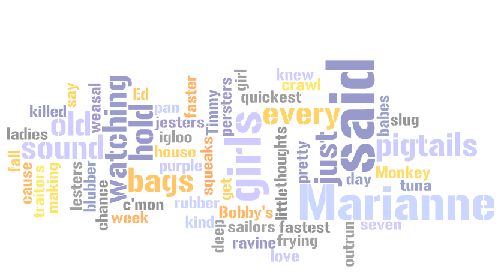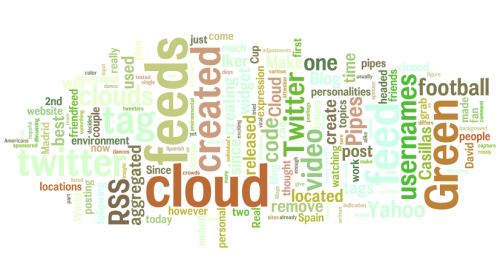Wordle is an online java based utility used to generate word clouds from text. The word could can be created from a block of text that you input, as RSS feed and from the tags used in a del.icio.us account.
The word clouds can not be saved to your computer but can be saved to the online gallery, printed or you can take a screenshot of your word cloud.
The word clouds can be customized by font, layout and color. The results are really quite beautiful
The following are screenshots I took of word clouds that I created over the weekend.
Text Option: Lyrics to Marianne by Tori Amos
RSS Option: RSS Feed of this Site
del.icio.us option: tags from my del.icio.us account kwbridge





[…] Kim Woodbridge – Wordle – This post introduced me to wordle – a great tool for some fun creativity. If you haven’t […]